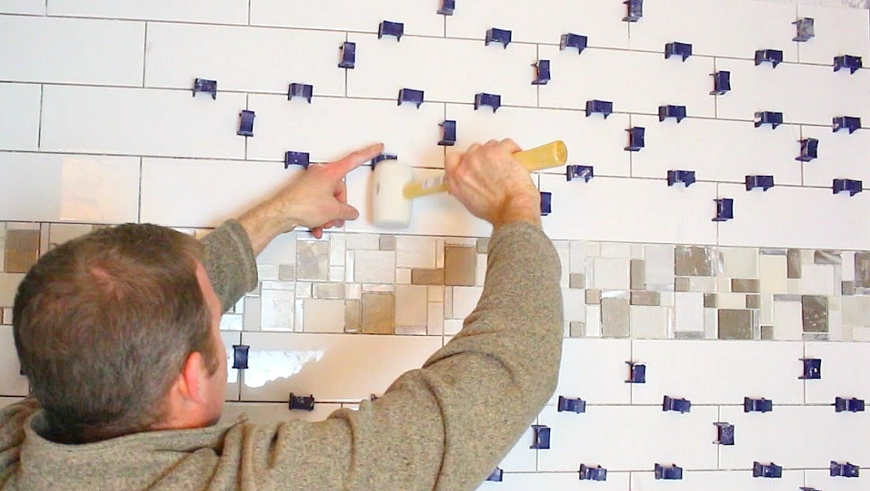Cost of Retiling a Shower
Last updated 29th August, 2025
Want to know the cost of tiling a shower?
All you need to know about retiling a shower, including costs of tiles, boarding, sealants, other required products, labour and time frames.
Continue reading below...

Table of Contents
How Much to Retile a Shower?
The cost of retiling a shower will be made up of material and labour costs combined.
Depending on the style and quality of tile you choose, you could pay between £45 and £75 per square metre to have ceramic tiles installed. The retiling price will vary depending on the materials you choose.
To get a clearer idea of the bathroom retile cost, you can measure how many square metres the shower area is and work from there.
Bear in mind that most quotes are based on the understanding that no additional work needs to be carried out underneath the tiles. If the surface is uneven, for example, it may need boarding or plastering, and this could increase the overall price of the retiling job.
You could also consider retiling the whole room instead of just the shower. On average, the cost of tiling a bathroom is around £800.
Shower Retiling Prices
Below are some estimated costs of retiling a shower.
| Job Description | Avg. Cost | Duration |
|---|---|---|
| Cheap Ceramic Tiles - Supply-Only | £10 per square metre | N/A |
| Average Labour Costs | £30 per square metre | N/A |
| Typical price for labour and materials | £45 per square metre | N/A |
| Typical shower tiling job supply and fit | £500 | 2 - 4 Days |
Cost Breakdown
Individual costs of retiling a shower - Total Cost: £500
Materials
£150
Tradesmen
£350
Waste Removal
£0
Labour Costs of Shower Retiling
The average day rate for a tiler is around £250, although this figure is likely to be higher in London and the South East due to the higher cost of living in those areas.
Tiler costs can be between £18 and £35 per hour, so smaller retiling jobs could be subject to a tradesman's daily rate instead.
Some tilers may have minimum charges to make a job worth their while. Pay attention to this in any shower retiling quotes you receive.
What Does Shower Retiling Involve?
Retiling a shower involves a distinct process that generally spans several days.
This covers:
- Removing the old tiles and cleaning the surface.
- Applying adhesive and setting the tiles.
- After allowing the adhesive to cure, grouting and sanding the tile.
As there are different tile materials you can choose from, the length of time it takes to fit them will vary.
For example, patterned tiles will take longer to install as the patterns need to line up, and this requires more care while installing.
Matching Tiles
There can be plenty of variation in shower tiles, so matching existing bathroom tiles could be tricky.
One solution to this is to make a feature of the fact that the tiles are different and choose a different style inside the shower compared to the rest of the bathroom.
Alternatively, you may decide to retile the whole bathroom instead.
DIY Shower Retiling
If you have the necessary skills and experience, you may be able to lower the cost of retiling a bathroom by doing the work yourself.
Bear in mind, however, that tiling can be a deceptively difficult task, and the cost of fixing any issues caused by poor installation could wipe out any initial savings made.
For example, the cost to regrout bathroom tiles typically starts from around £220 for a full bathroom.
What Tiles Should I Choose?
One of the most important things to consider is your choice of tiles.
All tiles have their pros and cons:
- Natural stone requires some sealing to be used in bathrooms or shower enclosures, plus light colour tiles can stain easily with watermarks.
- Mosaic tiles look great, but need a lot more labour and more grout to install. They will also need more frequent cleaning.
- Glass mirror tiles look glamorous, but show up smudges and need near constant cleaning to look their best.
- Ceramic and porcelain tiles are the most popular choices as they are hard-wearing, don't stain easily and are available at prices to suit all budgets.
If you love the look of stone or marble, then you can get ceramic and porcelain tiles with a stone effect, which are incredibly realistic and often difficult to distinguish from the real thing (but are much cheaper and more practical).









